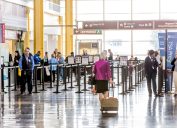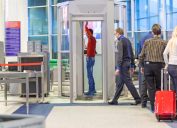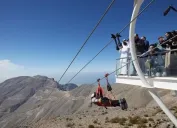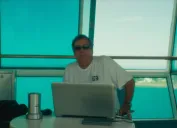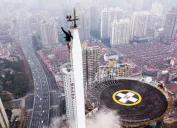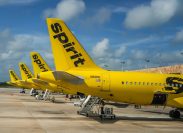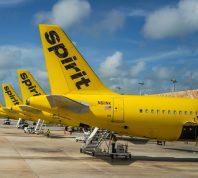TSA Backtracks on Flagging Certain Passengers for Extra Screening
The agency is changing some of its plans for travelers with Clear security memberships.
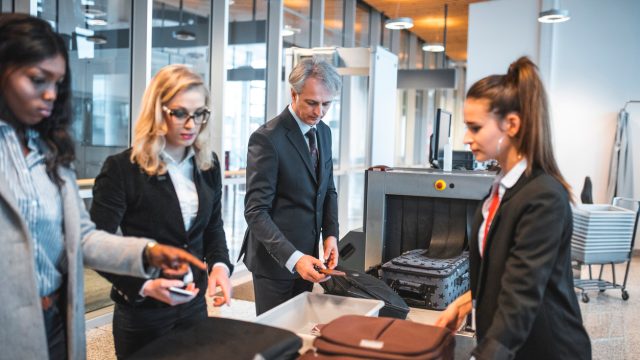
No matter how often you fly, everyone has to make their way through a Transportation Security Administration (TSA) checkpoint before they board a flight. The process has become something of a routine that regular travelers try to perfect to cut down on wasted time, including avoiding packing certain items in your carry-on luggage and knowing how to streamline getting through. But ultimately, travelers will still have to follow whatever rules the agency decides are necessary to keep flying safe—even if that means things will take a little longer. And now, the TSA has backtracked its plans to start flagging certain passengers for extra screening. Read on to see if you'll be affected by the changes and what they could mean for your next trip.
RELATED: 7 Clothing Items to Never Wear Through Airport Security, Experts Say.
The TSA recently announced changes for passengers using Clear security memberships.
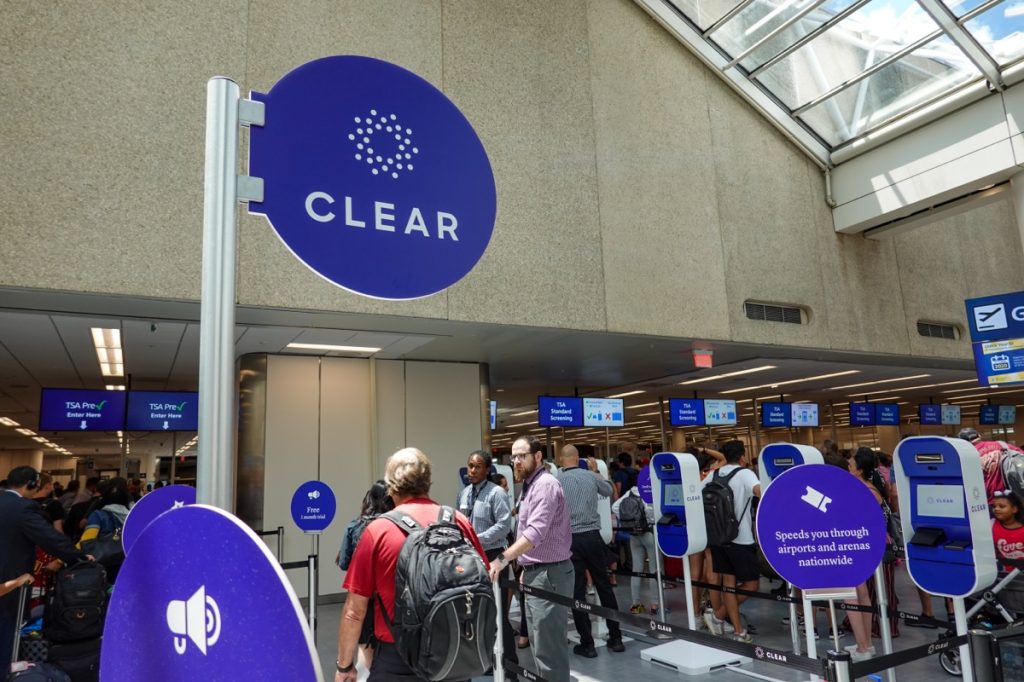
Even though many seasoned travelers choose to save time before flights by enrolling in the TSA's PreCheck program, there's another option that regular flyers can also use to breeze through checkpoints. Clear allows travelers to skip ahead of long lines by using biometric data such as iris scans and fingerprints to verify a traveler's identity before they're ushered through document checks straight to screening—all for a $189 annual membership fee.
But while the privately-run program has enticed frequent flyers for its added convenience, recent issues have threatened to slow down the process. In a letter last month, the TSA notified the company that it would be flagging "an increasing number of Clear members" to show ID when passing through security, The Washington Post reported.
The move came a year after the TSA had begun checking the IDs of random Clear members in July 2022 following a then-unspecified security incident. But now, the security agency appears to have changed course once again.
RELATED: TSA Issues New Alert on What You Can't Bring Through Security.
The agency is now backpedaling on its plans to request ID from more Clear travelers.
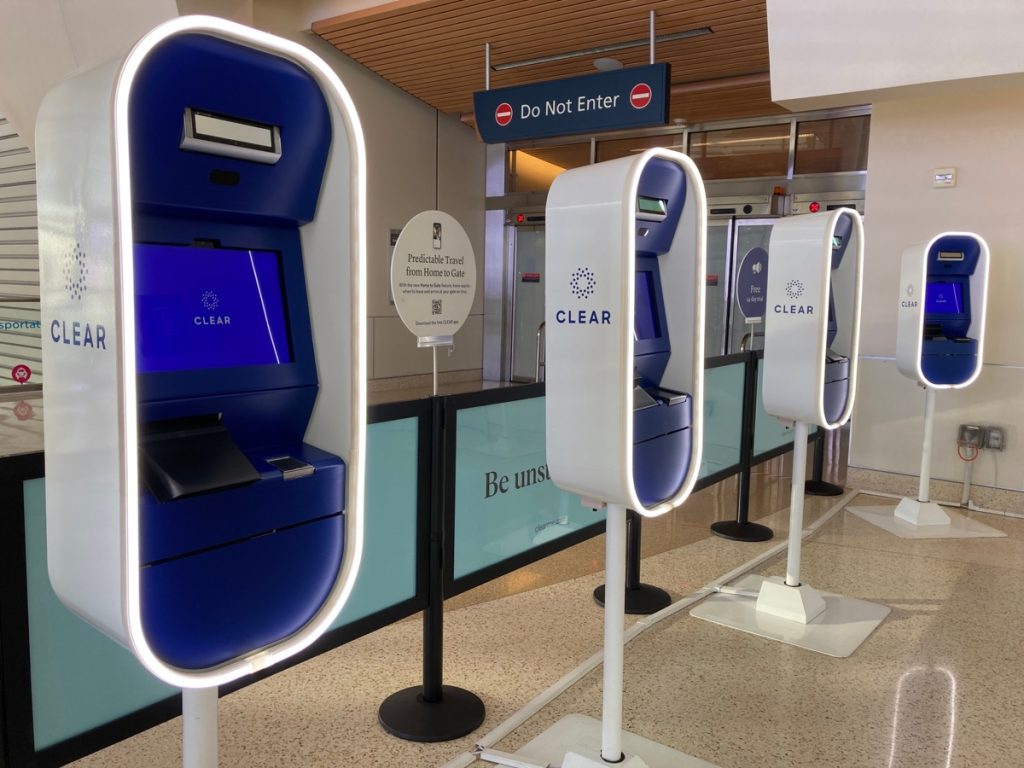
In a letter sent to Clear last week, the TSA said it would be scaling back its plans to require additional ID checks from an increased number of Clear members during security screenings, The Washington Post reports. The sources who viewed the agency's notice—who asked not to be named publicly—told the paper that the agency would instead ask for ID from a smaller percentage of the company's approved subscribers, effectively ending the plan to scan all passengers.
When reached for comment, a TSA spokesperson clarified that the agency was strictly adhering to the principles of its Registered Traveler Program and managing the required timeline and milestones with Clear.
"TSA is responsible for ensuring that all systems and programs, including those provided by private companies, meet requisite standards and will take necessary steps to ensure security needs are met," a TSA spokesperson said in a statement. "Accurate and reliable verification of passenger identity is foundational to aviation security and effective screening by TSA."
Best Life also reached out to Clear for comment on the changes, but has not yet heard back.
RELATED: Alaska Is Cutting Flights to 14 Major Cities After This Year.
The decrease comes despite several new security incidents involving the company.
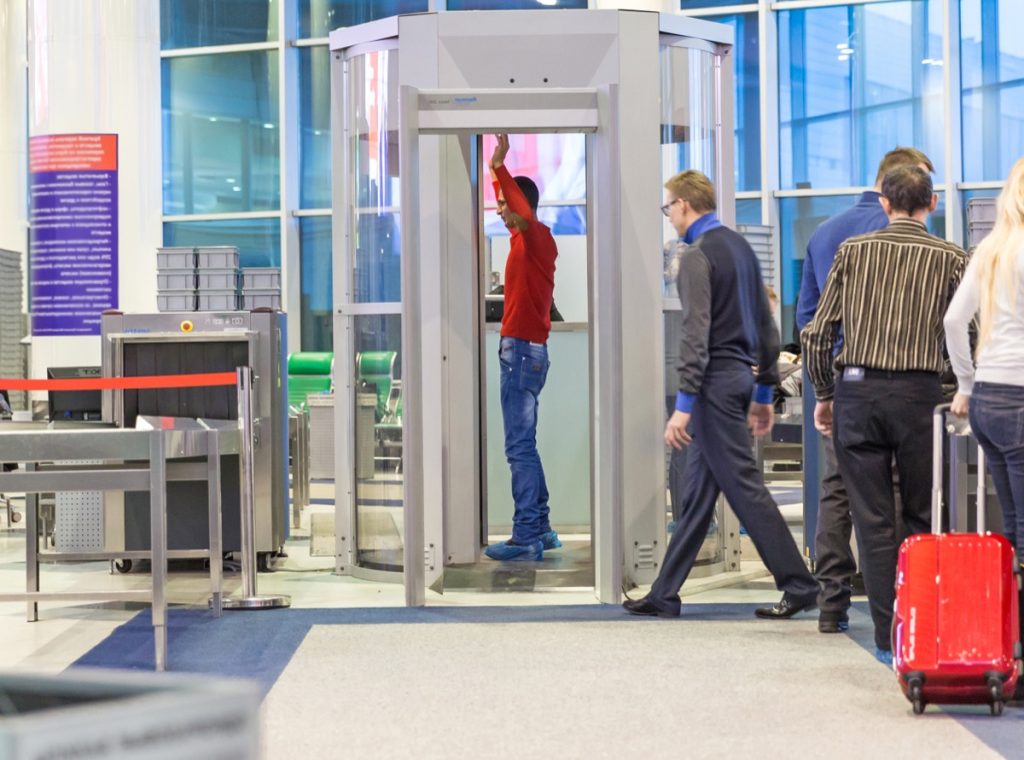
News of the agency's decision to scale back its ID requirements comes as Clear faces increased scrutiny following a series of recent incidents. According to a report from Bloomberg, the initial event in July 2022 that brought about the first set of increases involved a Clear traveler who appeared to be traveling under a fake name through Ronald Reagan National Airport near Washington, D.C. The passenger was only stopped after scanning equipment found he was trying to carry live ammunition through the security checkpoint.
Police called in to investigate the incident discovered that the man had been manually enrolled for Clear in Birmingham, Alabama, after the company's computer identified him as a mismatch with his photo ID using facial recognition, Bloomberg reported. In response, Clear said that the incident was unrelated to their processes and "was the result of a single human error—having nothing to do with our technology."
But two subsequent incidents were also reported that saw unauthorized passengers ushered through security checkpoints, Politico reported. In one instance last January, a traveler realized they had presented a boarding pass for a flight from an entirely different airport. And in February, a person used a boarding pass they discovered in an airport trash can to pass through a Clear checkpoint before they were stopped from boarding at the gate.
News of the incidents spurred responses from high-ranking congressional lawmakers focused on transportation safety.
"After being briefed that there have been multiple security breaches over the past year due to Clear's lax security controls, it is apparent that the company puts its bottom line ahead of the security of our aviation system," Rep. Bennie Thompson, the top Democrat on the House Homeland Security Committee, said in a statement to Politico earlier this month. "Each passing day, the homeland is at greater risk until TSA acts to completely close these security vulnerabilities that it was alerted to last year. We cannot afford any additional delay."
RELATED: For more up-to-date information, sign up for our daily newsletter.
Clear has made some changes in response to the issues.

While the TSA's latest decision to roll back its plans to require more ID from passengers falls in its favor, Clear has still maintained its practices are sound and that the company is stopping at nothing to adhere to guidelines. This includes enlisting former Department of Homeland Security Administrator Jeh Johnson to help navigate issues and streamline work with authorities.
In a letter sent to the TSA last December that was obtained by Bloomberg, Johnson noted that the incident in which the man was stopped at Reagan National Airport represented an issue with one percent of Clear members. He explained that in such cases of questionable facial recognition, a minimum of two Clear employees had to verify their identity.
Johnson also noted that the traveler implicated in the initial incident was Black and was manually verified at the time because the company's facial recognition software had not been optimized for people with darker skin, per Bloomberg.
However, in a subsequent press release, the company clarified that it had since stopped allowing for manual verification, adding that Clear had "fully re-enrolled the [minuscule] percentage of our customers" enrolled under the old process.
"In the last six months alone, the TSA has reverified 4.7 million IDs without citing a single issue," the company wrote, adding, "Clear has consistently delivered on state-of-the-art technology that strengthens airport security and enhances travel for millions of passengers—and that is exactly what we will continue to do."
